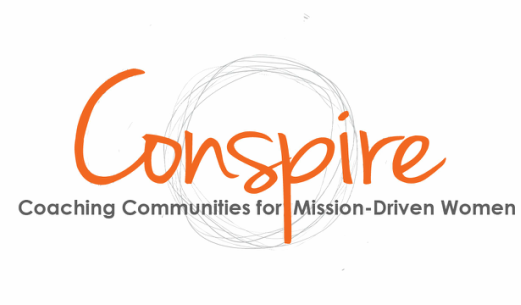|
Over the past six years of coaching incredibly thoughtful, intelligent and highly-committed women, the theme of developing personal power and influence has been a recurring one. As a coach, I have been inclined to help my clients figure out how to develop this power and influence. One strategy has been by doing some "influence mapping" or, more plainly, by tuning into the world view of the client's boss or other people he/she would like to influence; What are her priorities? What are the pressures on her? What's his work style and learning style? How does he like to be communicated to? What does she value? What are her weaknesses? etc. One of my first clients had an abusive boss, and I was too green to help her spot it. We focused on influencing strategies that had her taking all the responsibility for the relationship. In reality, these strategies played right into the boss' perception that he was all-powerful as she scrambled to tune in to his needs, but could never, ever get it right. Since then, I've studied up on how to spot an abuser and I am committed to helping my clients distinguish the difference between the need to gain influence v. the need to put an end to bullying. Before I go from power & influence and on to abuse, let me clarify what I mean by power and influence. We all need to have some degree of power and influence at work. We need an appropriate degree of power to influence the direction our organizations take; to advocate for our subordinates and their careers, to secure approval for investment in our ideas, to gain the ear of decision makers.With a sense of appropriate power, we feel legitimate. We feel a sense of personal autonomy and value. We feel as though we are living and working with dignity. Most of us have also experienced some degree of powerlessness. It enters into our lives suddenly with a change in leader, a loss of funding, a new set of organizational priorities. We know when our work feels irrelevant or undervalued to an organization or a new leader. We feel it when something shifts and we go from being able to make decisions to having to have every little thing approved. We feel pained when we realize that we've somehow been bumped lower down in the hierarchy or that we've somehow slipped in status. Sometimes a sense of powerlessness is innocuous and part of a natural course of events. For example, with a new administration, some policy areas become less relevant and people working in policy shops have little power over the fact that their area of expertise has just become a career liability. Or when someone leaves an organization and we lose a champion with access to the decision makers. Or when organizational shifts cause us from being known and trusted to being unknown. Just because we feel powerless does not mean we are experiencing an abusive boss or work environment. In these situations it's possible to gain influence, reposition, or to make a determination that the job is no longer a good fit. What's harder to spot is when our sense of powerlessness (and resulting stress, anxiety, over-working, lack of balance) happens because we find ourselves being led by an abusive boss. The trick about identifying an abuser is not excusing repeated, persistent, negative behavior. It's so easy to excuse because none of us is a perfect leader ourselves; Who among us hasn't been in a bad mood that has affected others? Who among us hasn't felt over-worried and maybe micro-managed a bit too much? Who among us hasn't had a lapse in judgement when we feel our own status is threatened? Who among us hasn't been a hypocrite? Who among us hasn't been inconsistent, arbitrary or thoughtless in our directions at some point? Who among us hasn't considered how loyal people are on our team or felt a sense of paranoia? We are all human, and many of us, especially women, look for ways to understand our bosses and try and meet their needs. When you realize that abusive behavior is persistent, it's important to stand your ground. First, recognize that if you're spinning your wheels with reasonable approaches to improving the working relationship, your boss isn't reasonable. Tell yourself this again and again - you are no longer operating in the realm of normal, professional behavior. Second, consider the following questions:
A final word: no one is immune from developing abusive behavior. My clients who have experienced abuse recently (and there have been a steady increase in this number of clients coming to me with abusive bosses -- I have my theories as to why) have worked in schools, with social workers, in the most "caring" branches of government. Even people in "nice" helping careers can become abusers and they can, in other contexts, be very "nice" people. Don't be fooled.
0 Comments
Leave a Reply. |
Archives
August 2021
Categories
All
Archives
August 2021
|
Conspire |
MissionWe conspire with mission-driven women to lead, succeed and thrive in their careers, lives and organizations.
VisionIndividuals: We envision women who are enlivened, empowered and emerged. Our members have clarity of purpose and lead from strengths.
Community: We bring communities of women into the practice of seeing each other's strengths and potential. We envision multiplying communities of women-fueling-women's success and impact. World: We conspire to unlock the potential energy & contributions of 51% of the human population. When this potential energy, thought power, and talent is unleashed, we will solve even the most difficult problems and transform the world. |


 RSS Feed
RSS Feed

